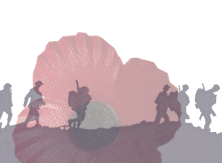The Tull Brothers

Their names will be remembered for evermoreTwo brothers who rose above adversity to academic and sporting achievement are inspiring in their own right. That they were black only adds to what they did at a time when racial minorities had to fight hard for opportunities among the white population. Walter Tull was the army's first black officer, and signed as Rangers' first black player. His brother Edward was Britain's first professionally registered black dentist. The brothers were born in Kent to a carpenter from Barbados and his white English wife. After Daniel and Alice Tull had died, two of their five children, Edward and Walter, were sent to a children's home in London's East End. The Wesleyan Methodist home had a great singing tradition, and Edward became part of a choir which toured Britain. A New Home for an Orphan It was on one such tour that he was seen by a Glasgow couple, Jeanie and James Warnock. James had been apprenticed to Jeanie's brother, James Aitken, as a dentist before the profession was regulated. As children, Jeanie and her brother had themselves been orphaned and were raised in a poorhouse in Kirkintilloch. It was this awareness of disadvantage that spurred Jeanie and her husband to adopt 14-year-old Edward, after seeing him sing with the choir in 1900. Although Edward moved to Glasgow, where his adoptive father had a dental surgery in St Vincent Street, his new family kept in touch with Walter in London, and he was frequently invited to Scotland. Edward excelled academically, and entered the Glasgow Dental Hospital in 1906, where his lecturers recorded his "painstaking zeal in his work" and he won prizes. He graduated in 1910 and was the first black dentist to hold the licentiate in dental surgery, as the profession gained regulation. Excelling on fields of Sport and Battle Walter, meanwhile, established himself as a footballer. He played for Tottenham Hotspur and Northampton and, at the outbreak of war, joined the 17th (Footballers') Battalion of The Middlesex Regiment. Walter was recommended for an officer's commission in 1917. He was sent to Gailes in Ayrshire for his training and while there was invited to play for Rangers. Football historians have never been able to establish whether he actually played for the team, but he did sign, on 2 February, 1917. Edward played golf at Turnberry in Ayrshire, where his partner was James Bowie, a Rangers player and later chairman. This probably alerted the club to Walter's presence in Ayrshire, as he was already a noted player in England before the war. He may have played some friendlies for Rangers while doing his officer's training. He was called back to Italy before he could play professionally again. On New Year's Day 1918, his gallantry under fire was noted by a fellow officer, but his talent to the army and to sport was not to survive the war. Walter was killed in action while leading an attack on the Western Front just two months later. At the start of the war, many would-be soldiers were in such bad need of treatment that they were rejected for service. The British Dental Association offered to provide treatment for the armed forces, and those intending to join up were sent to Glasgow where a rota of dentists - Edward may have been one of them - offered free care. In 1916, after conscription, Glasgow Central Tribunal decided that dentists should be exempt from military service. After the war, Edward continued practising in Glasgow and Girvan, and became a championship golfer. He remained a friend of James Bowie and was a guest of the chairman at Rangers matches. Seven of his extended family became dentists. During a visit to the Warnocks' home, Walter was photographed with Edward and their sister Cissie, who was also living there. Had he survived, he had intended to make Glasgow his home too, and Rangers his team. View the original referenced text here: Tull Brothers (PDF, 135 KB) |
Images:
|









